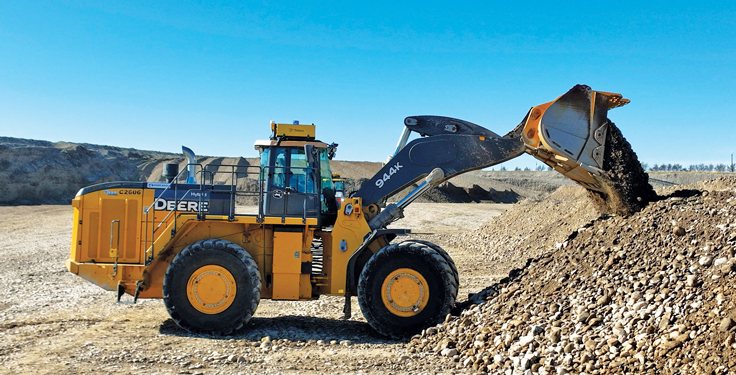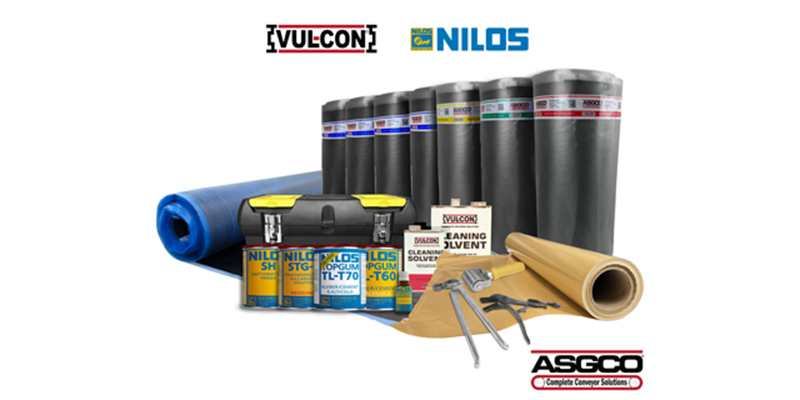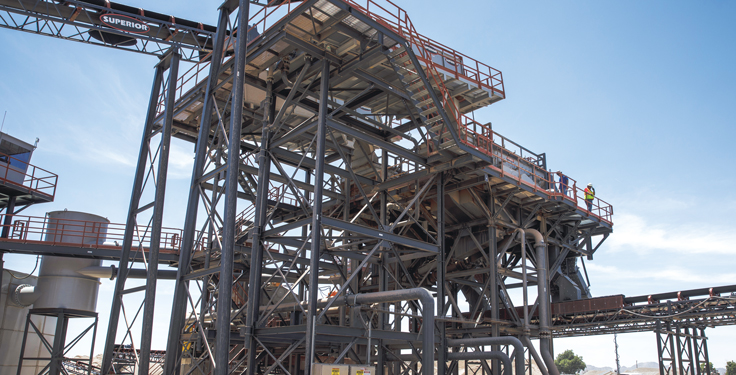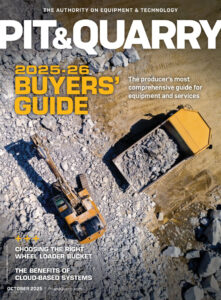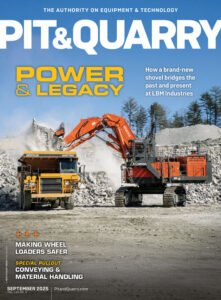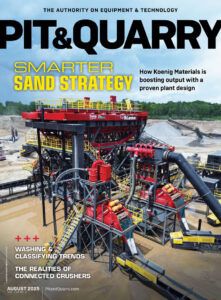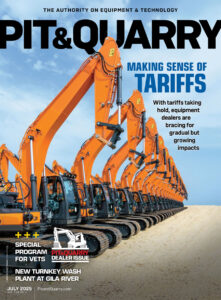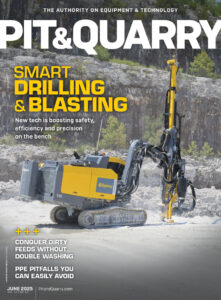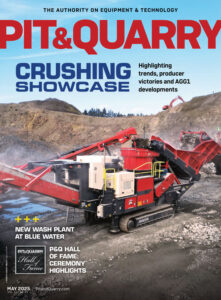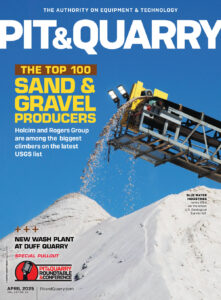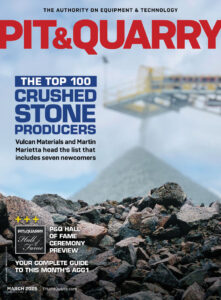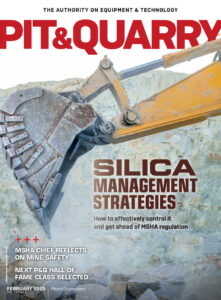Autonomous technology has steadily been making a home for itself in the aggregate industry over the last several years.
The benefits autonomy provides, particularly in the powered haulage space, are many.
Safety is elevated by taking workers out of the cab and away from haul roads. The technology can supplement or supplant open jobs that operations are struggling to fill, and it generally allows employees to attend to other, less repetitive tasks.
A dealer and producer in the West are currently utilizing autonomy on different pieces of equipment, with the aim of helping disabled veterans.
RDO Equipment Co., a dealer with 85 locations across 12 states, and Knife River Corp., a producer operating in 14 states, collaborated on a pilot project to create accessible job opportunities for military veterans. To do this, the companies are joined by John Deere and Teleo, a company specializing in retrofitting equipment with supervised autonomous technology.
The program will employ veterans with disabilities at the Knife River gravel pit in Belgrade, Montana. There, two program participants will complete jobsite tasks with Deere 944K loaders from a safe, centralized remote command center thanks to Teleo’s semi-autonomous technology.
Serving those who served
RDO’s participation in the program has been championed by Adam Gilbertson, the company’s senior vice president of field technology and innovation. Gilbertson spent 16 months in Iraq as an officer in the U.S. Army, returning in 2007.
During his deployment, Gilbertson says 20 soldiers in his company received the Purple Heart. Two died in combat, two died by suicide after their deployment and another half-dozen were left with life-altering injuries.
“As a United States Army veteran, I am always looking for ways to support other veterans,” Gilbertson says. “As the idea to utilize Teleo technology to benefit disabled veterans on job sites gained traction and the possibility of support from the state of Montana became realistic, we knew we’d need a high-quality partner as a ’host,’ so to speak. Knife River is a respected employer in Montana and many other states, and we share many values.”
David Zinke, president of Knife River’s Mountain region, is encouraged by the strides technology has made and how it is making jobs more accessible.
“The latest developments in construction technology are changing the way we work from so many different angles,” Zinke says in a video on RDO’s YouTube channel. “Most encouragingly, technology provided by Teleo is opening new opportunities for workforce inclusion in the construction industry.”
For Knife River, this program is a win-win.
“We need employees, and this looked like a good way to train disabled vets in the applications like we have in this pit,” Zinke says. “This is a great new technology. We think this technology is the future, and we figured we might as well embrace it now.”
Although the positions have not yet been filled, Hal Fuglevand, vice president of operations at Knife River, says the pilot program has received positive support so far.
“There’s definitely been excitement around the program since announcing it last fall,” Fuglevand says. “We’re looking forward to continuing this partnership with RDO and Montana’s veterans.”
Tackling the technology
Prior to the pilot program, Teleo made a name for itself through its ability to retrofit construction equipment – including dozers, excavators and loaders – with remote-operated and supervised autonomous tech.
This enables individuals with physical limitations to work in a safe and controlled environment.
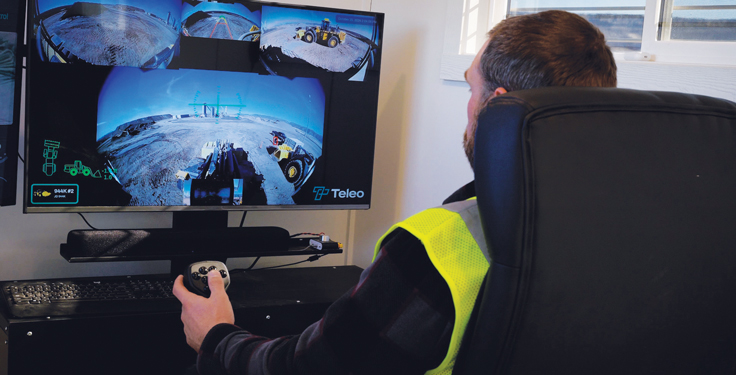
“There are not a lot of jobs that are accessible to put veterans back to work,” says Vinay Shet, co-founder and CEO of Teleo. “The vision was that we wanted to build technology that would fundamentally improve people’s lives. This opens up the workforce significantly. I believe that technology is the ultimate equalizer, and this is a prime example of how technology is helping make jobs more accessible.”
With their equipment front and center in this program, Deere relishes the chance to provide opportunities to veterans while simultaneously expanding the labor pool.
“If you can open up the labor pool to folks who can’t actually be on a site, you can facilitate workers who are in remote locations working for somewhere that might not have the required labor to actually operate machines,” says Jonathan Spendlove, manager of precision construction at Deere. “It expands the labor pool for our customers.”
According to RDO, remote operation is facilitated through a series of mesh nodes and solar stations strategically placed around the site, enabling the teleoperation of the vehicle. In the control center, operators view a composite of multiple cameras placed throughout the machine, providing complete visibility around the machine – including under the bucket.
Tom Potter, general manager of emerging technology markets at RDO, says Teleo’s technology means remotely-operated loaders won’t miss a beat.
”Teleo’s semi-autonomous loaders are designed to match or exceed the performance of traditional loaders, especially in terms of efficiency, safety and operator accessibility,” he says ”The remote controls are intuitive, like a gaming system, so the learning curve for a less experienced operator can be a similar length to someone who might have had some time in a loader’s seat.”
After seeing the technology at work, Zinke is impressed with its capabilities.
“The loader pulled up without an operator in it and we said: ‘Wow, this is really straight,’” he says. “I sat in the seat and ran it. It’s not as hard as you would think for a big loader like that. The cameras were good. So far, I’m very impressed with it.”
Making it happen
Funding for the program was made possible through a $325,000 grant from the Montana State Department of Labor & Industry (DLI).
“We have a responsibility to support those who have served our country,” says Greg Gianforte, governor of Montana. “Through this grant, we are empowering veterans with good-paying jobs and helping them transition after a life of service. I’m proud to join DLI in recognizing this innovative program to support our nation’s heroes.”
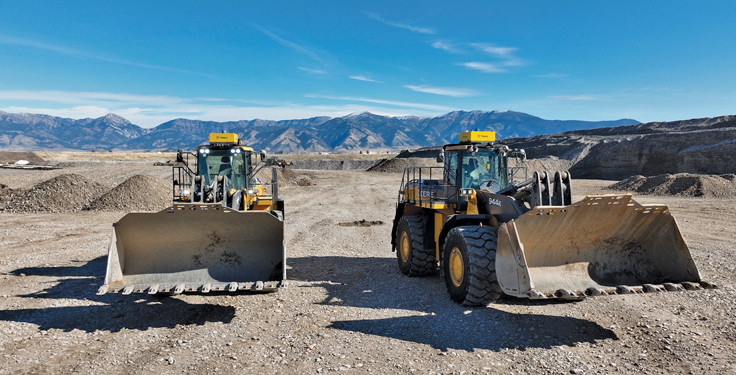
During a demonstration at the Belgrade site, Gianforte utilized the tech to remotely operate a John Deere loader, moving gravel from a control station located near the worksite.
“I’ve spent some time on a loader [before] but doing it virtually, it was very intuitive, and this is why this technology is so important,” says Gianforte in a video on Teleo’s YouTube channel promoting the program. “We can get people that may be sitting on the sidelines back into the workforce.”
Gianforte encourages veterans to consider participating in the program.
“I encourage any disabled veterans out there who are looking for a job to apply,” he says. “This is good, important, noble work. Thank you to John Deere and Teleo for your work to make this possible.”
What’s next?
Gilbertson has a passion for bringing new people into the industry. When opportunities are made available for veterans, it’s all the better.
“I’m motivated to partner with contractors and manufacturers to bring new people into the industry,” Gilbertson says. “When that passion can also support veterans, I’m thrilled. Both Knife River and RDO want to be leaders in developing the labor force and use technology to increase access and give people like disabled veterans the tools to operate heavy equipment.”
Gilbertson sees no reason the technology can’t go on to help even more people.
“You’re able to operate these machines remotely, and that really opens a lot of doors,” he says. “There’s no reason this couldn’t extend to the wider disabled community or, even, [individuals who are] completely abled, as we look at how these machines operate. This technology can really extend to just about anywhere.”

